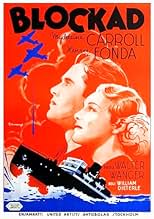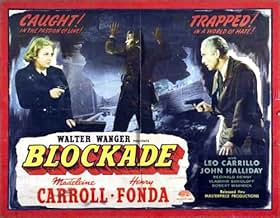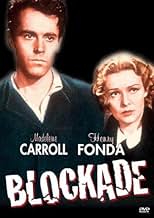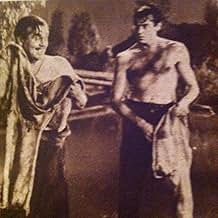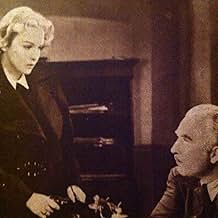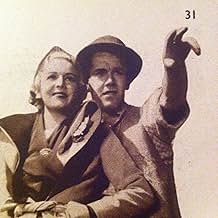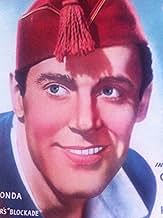अपनी भाषा में प्लॉट जोड़ेंA simple peasant is forced to take up arms to defend his farm during the Spanish Civil War. Along the way he falls in love with Russian whose father is involved in espionage.A simple peasant is forced to take up arms to defend his farm during the Spanish Civil War. Along the way he falls in love with Russian whose father is involved in espionage.A simple peasant is forced to take up arms to defend his farm during the Spanish Civil War. Along the way he falls in love with Russian whose father is involved in espionage.
- 2 ऑस्कर के लिए नामांकित
- 2 कुल नामांकन
- Pietro
- (as Fred Kohler Sr.)
- Commandant
- (as Wm. B. Davidson)
- Cabaret Singer
- (as George Byron)
- Townswoman
- (बिना क्रेडिट के)
कहानी
क्या आपको पता है
- ट्रिवियाThe original title of this film was "The River is Blue" and the director was to be Lewis Milestone. Kurt Weill even wrote music for the project that was never used (lyrics by Ann Ronell). The title was changed to "The Rising Tide" and "Castles in Spain," then finally to "Blockade." The topic of the Spanish Civil War was politically sensitive and there is some hint that the upheavals of the original project were due to the political content of the film.
- भाव
Marco: [last lines, after being told to find peace] Marco: Peace? Where can you find it? Our country's been turned into a battlefield! There's no safety for old people and children. Women can't keep their families safe in their houses; they can't be safe in their own fields! Churches, schools, hospitals are targets! It's not war; war is between soldiers! It's murder! Murder of innocent people! There's no sense to it. The world can stop it! Where's the conscience of the world?
- कनेक्शनFeatured in Red Hollywood (1996)
The factions are referred to only as "Them" (invaders) and "Us" (invaded). The casus belli is no more than Their attempt to purloin Our land, a valley near Granada. What ensues is personalised, studio-bound melodrama. Heroic amateur soldier Henry Fonda stiffens his fellow peasants' backs to resist the grab. He woos blonde White Russian adventuress Madeleine Carroll and finally demands foreign intervention in a Chaplinesque harangue to camera: "Where's the conscience of the world?"
It all savours of Hays Office intervention and the anxiety of Lawson's "progressive" producer, Walter Wanger, not to provoke the US public by charging them for a liberal sermon. But "Blockade" may be subtler agitprop than it seems.
By 1938 anybody who read a paper or watched "The March of Time" would infer that Fonda stands for the Republic fending off General Franco's Nazi- and Fascist-backed Nationalists-- not the other way round. And Lawson's emphasis on small farmers guarding their ancestral acreage is just what Stalin ordered. In reality the country round Granada was a hotbed of anarchist schemes for collectivising agriculture, but the Communist line was that the Republic's left-front government, including democratic socialists and liberals, must be sustained till the rebel generals were routed. Only then could land reform be considered; reform under the aegis of a Communist-dominated regime subservient to Moscow, which would nationalise the land, not parcel it out to dubious anarchic types.
Moreover, Lawson must have relished making Carroll's character an exiled daughter of Russia with a crooked anti-Red father, who sees the light in Fonda's arms.
We laugh at movies such as this and "Last Train from Madrid" for their superficial, sentimental view of a burning issue. But what right has today's supposedly more liberated Hollwood to laugh? Where were Vietnam films during the conflict, apart from John Wayne's "Green Berets"? How many Gulf War or Enduring Freedom stories have we seen? How many portrayals of radical Islam, pro or anti? Hollywood is more gutlessly evasive than ever during our dangerous times. Well, export markets provide more of its profit margin than 60 years ago...
टॉप पसंद
विवरण
बॉक्स ऑफ़िस
- बजट
- $6,92,087(अनुमानित)
- चलने की अवधि1 घंटा 25 मिनट
- रंग
- पक्ष अनुपात
- 1.37 : 1
इस पेज में योगदान दें


